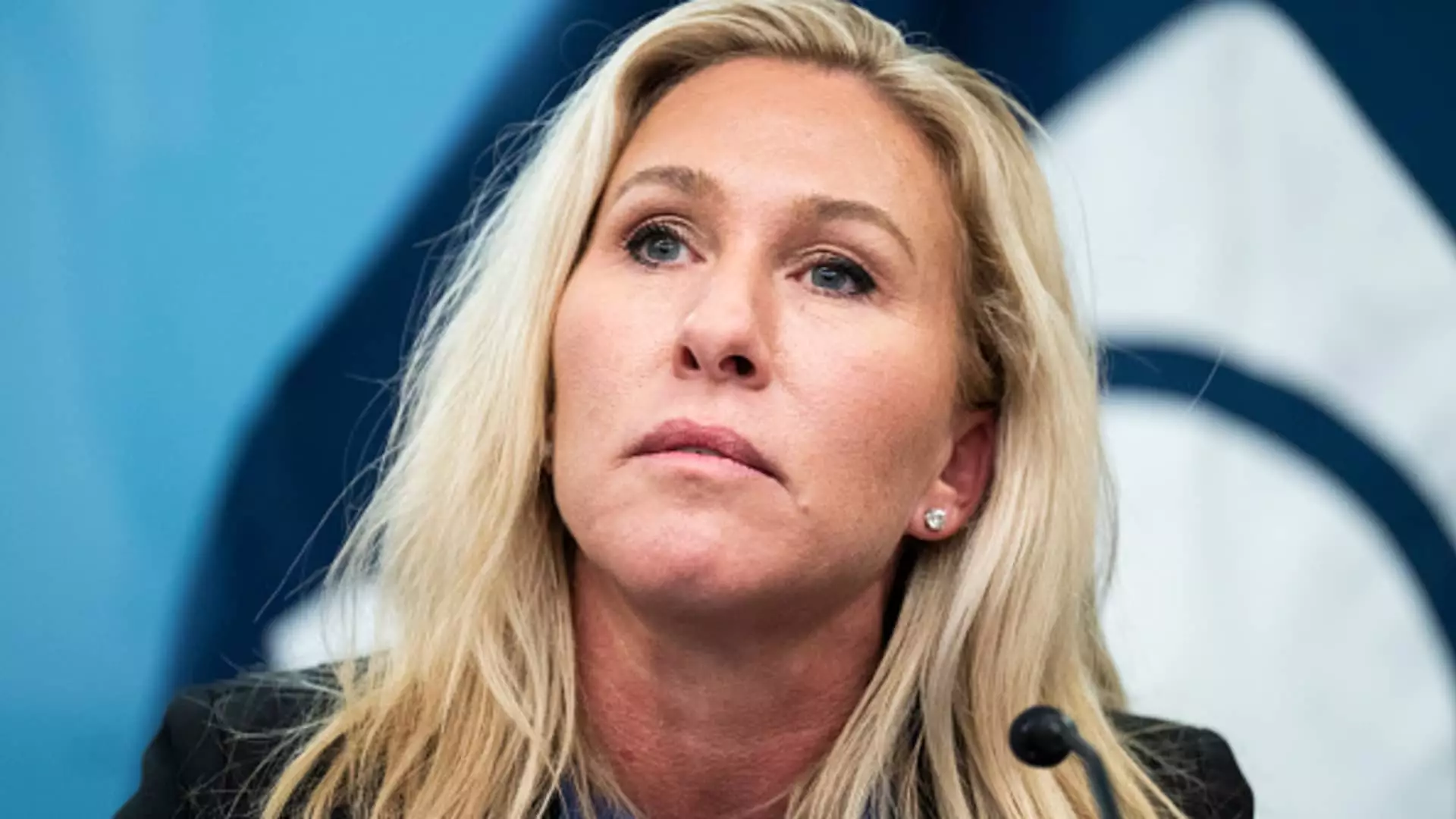The appointment of Rep. Marjorie Taylor Greene, a controversial figure in American politics, to lead the House subcommittee on government efficiency signals a bold and provocative shift in how Congress intends to address inefficiencies within federal agencies. This initiative, rooted in the collaboration with business moguls Elon Musk and Vivek Ramaswamy, represents a unique intersection of politics and private sector efficiency.
Greene has been entrusted with chairing the Subcommittee on Delivering on Government Efficiency (DOGE), a name that is both catchy and emblematic of the current fusion between government and commercial interests. Teaming up with influential figures like Musk and Ramaswamy, Greene’s committee is set to embark on a mission to dissect the federal bureaucracy, exposing waste and inefficiency that they claim plagues the system. The collaboration appears to be positioned as a multipronged approach, with Greene stating a commitment to working closely with these entrepreneurs to formulate actionable recommendations for government reform.
Greene’s emphatic statement regarding her commitment to transparency and oversight further underscores the subcommittee’s ambition. She has suggested a promise to hold hearings that could potentially lead to the dismissal of government officials deemed unnecessary or inefficient. Her statement that “no topic will be off the table” underscores a radical shift in how Congress may approach its relationship with the federal bureaucracy. This aggressive stance raises questions about the implications for civil service, accountability, and the general ethos of governance.
Targeting Bureaucratic Excesses
House Oversight Chairman James Comer has also expressed a vigorous intent to address issues he describes as “too many fat cats in government.” This rhetoric signals a more aggressive tone that aligns with the leadership’s priorities: trimming down government costs and enhancing operational efficiency. The DOGE initiative intends to follow a model where public perception plays a crucial role in illuminating inefficiencies. By bringing these issues to light, the aim is not merely to reform but to instigate a broader cultural shift within government agencies.
Musk and Ramaswamy: Business Leaders Enter the Political Arena
The involvement of Musk and Ramaswamy is particularly noteworthy. Both are revered for their success in the private sector, and their insights are likely to provide a fresh, entrepreneurial perspective to governmental reform. Musk, known for his innovative approaches within his companies, and Ramaswamy, a rising political figure with business acumen, may infuse the committee’s efforts with unconventional strategies that aim to cut red tape. Their role, however, also raises concerns about the potential blending of corporate influence with public policy.
While the initiative might promise greater efficiency and transparency, it is not without risks. Greene’s history of engaging with fringe theories and contentious political discourse means skepticism from various quarters is likely. Her previous removal from committee roles for promoting conspiracy theories adds another layer of scrutiny. If the committee’s efforts are perceived as merely a political tool instead of genuine reform, the initiative could backfire, potentially further eroding public trust in governmental institutions.
As the new year approaches, all eyes will be on the Subcommittee on Delivering on Government Efficiency and its inaugural activities. The outcomes of Greene’s leadership and the collaborative efforts with Musk and Ramaswamy will undoubtedly shape the political landscape and the operational integrity of federal agencies. Time will reveal whether this bold experiment can indeed untangle the complexities of government inefficiencies or whether it will further entrench the divides in American political discourse. The journey ahead is set to challenge the status quo and provoke discussions about the intersection of governance and business—but its success will ultimately depend on the execution of its ambitious goals and the trust it can build with the public.

Leave a Reply